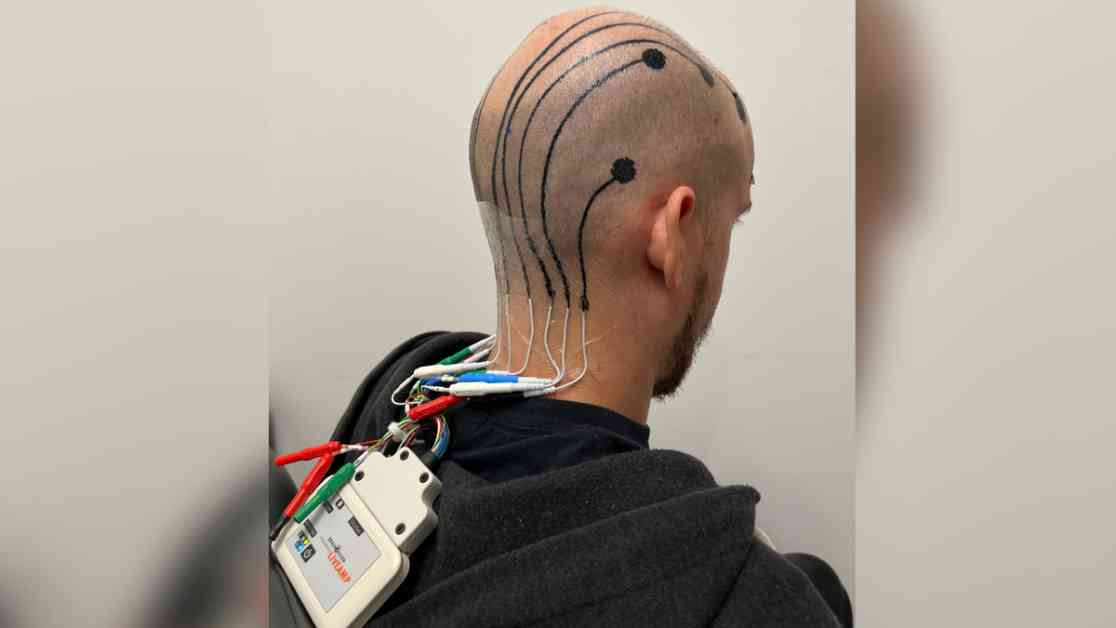Scientists Develop Electronic Scalp Tattoos for Brain Monitoring
In a groundbreaking development, scientists have created a new technology that could revolutionize the way we monitor brain activity. This innovative method involves using electronic, temporary tattoos to measure brain waves, offering a quicker and more convenient alternative to traditional electroencephalogram (EEG) tests.
The Traditional EEG Process vs. Electronic Scalp Tattoos
Traditionally, EEG tests involve technicians marking up a person’s head with rulers and pencils before attaching electrodes to the scalp. These electrodes are connected to a machine via long wires to record brain activity. This process can be time-consuming and inconvenient, requiring one to two hours to set up and constant monitoring due to the drying glue.
In contrast, the new technology utilizes a robot programmed to jet ink made of conductive material onto specific positions on the scalp. This method not only saves time and labor but also results in a thinner, more flexible electronic tattoo that can detect changes in brain activity just like regular EEG electrodes.
Advancements and Future Implications
The electronic tattoos, once dried into a thin film, can stay on the scalp for extended periods, making them ideal for continuous monitoring. They can be easily removed using alcohol wipes or shampoo, eliminating the hassle of dealing with electrode glue in hair.
In a recent study published in the journal Cell Biomaterials, researchers found that the electronic tattoos were as effective as conventional EEG electrodes in detecting brain waves. This promising result paves the way for further research to determine the efficacy of e-tattoos in patients with specific neurological conditions and varying hair lengths.
Looking ahead, the researchers aim to enhance the technology by embedding wireless data transmitters in the e-tattoos, making the system fully portable. This could potentially lead to advancements in overnight brain activity monitoring, aiding in the diagnosis of sleep disorders and other conditions.
Emily’s Take: A Personal Reflection on the Future of Brain Monitoring
As someone with a background in biology and neuroscience, I find the development of electronic scalp tattoos for brain monitoring truly fascinating. The idea of a non-invasive, efficient method to track brain activity opens up a world of possibilities for both researchers and patients.
Imagine a future where individuals can easily monitor their brain health at home, or where doctors can diagnose conditions like epilepsy or sleep disorders more effectively. The potential impact of this technology on neuroscience and healthcare is immense, and I look forward to seeing how it evolves in the years to come.
For questions or comments about this article, feel free to reach out to me at emily.cooke@futurenet.com. Let’s continue exploring the wonders of the human brain together!










